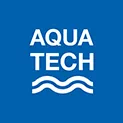Accelerating change
World Water Day this year was built around ‘accelerating change’. The world is facing multiple water challenges that require urgent attention and action from governments, civil society, and individuals alike.Ensuring access to safe water and sanitation, addressing the impacts of climate change, reducing water pollution, and promoting sustainable water use is critical for achieving the United Nations' Sustainable Development Goal 6, which aims to ensure the availability and sustainable management of water and sanitation for all. In my view, the answer lies in closing and finally restoring the water loop.
Restoring the water loop
The water infrastructure is complex and investments require long-term funding, which is what many countries, cities, municipalities and industries are lacking. However, by giving each party the responsibility for their own actions, closing the water loop can be achieved. For example, industries can treat their wastewater into reusable process water and recover resources, converting waste into biogas as well as recovering raw materials like fertiliser.
“Paying for water is like paying for postage.”To make this feasible, industries need to change or optimise their processes to utilise every drop of water to avoid the water consumption becoming too high. By implementing sustainability targets, even net-zero targets, they are already developing a closed loop approach very close to their facilities and cities becoming self-sufficient. The water loop in these areas can turn into real ‘water-on-demand’ processes. Water is enriched and ready for use for the right quantity and quality, both for drinking water and other purposes.
However, it does not stop by closing the water loop for all the new initiatives. With the current water pollution of seas and rivers and the discharge of polluted water, the loop is in natural disbalance. A final step lies in restoring the natural water loop in a way where we’re not affecting the environment anymore and still able to ensure sustainable management of water and sanitation for all. To realise this, we need to start working with industries and cities on revaluing water as a business model.
Water as a service - promising new business models
Revaluing water cannot be achieved overnight, so new and renewed business models are needed. Take for example ‘Water as a service’. Paying for water is like paying for postage. When you purchase stamps, you are not just paying for the stamps themselves; you are paying for ensured delivery. It is a simple process to attach a stamp to a letter and drop it in your nearest mailbox or post office, but you also don’t have to worry about the process of delivery because you know your letter will be in good hands.Similarly, when you pay your water and wastewater bills, you are paying for the services, utilities, or water treatment/technology that companies provide, to always deliver clean and potable water to your home, business, or community and ensure the treatment of your water in a reliable way.
Especially within businesses, the concept of ‘Water as a service’ can be very beneficial as no investment costs for new water treatment systems are needed. Instead, you only pay for the water you use and produce, resulting in savings via reuse as well as profits from the resources you recover. In this way, #EveryDropOfWaterCounts. Different contractual models are available today to provide peace of mind, securing access to the desired quality and quantity of water required.
For example, industries are choosing water reuse as a mandatory solution in new plants they are investing in, reducing both the water and CO2 footprint. In addition, renewable energy is of increasing importance due to the high/fluctuating energy prices, which are also pushing for alternative sources of energy. Besides solar, the recovery of energy from waste streams is ultimately becoming an important energy source as well.
In my next ‘Masters of Water’ blog, we will take a deep dive into the adaptation of game-changing innovations and our mission to support the required acceleration to meet the ever-demanding water challenges around the globe to ensure that water is valued as the revitalising force it has always been. The #Saur Group and #NijhuisSaurIndustries call it #MissionWater.
Menno Holterman is the CEO of Nijhuis Saur Industries.







